Samsung 850 (Non-Pro/EVO) And 860 EVO Appear Online
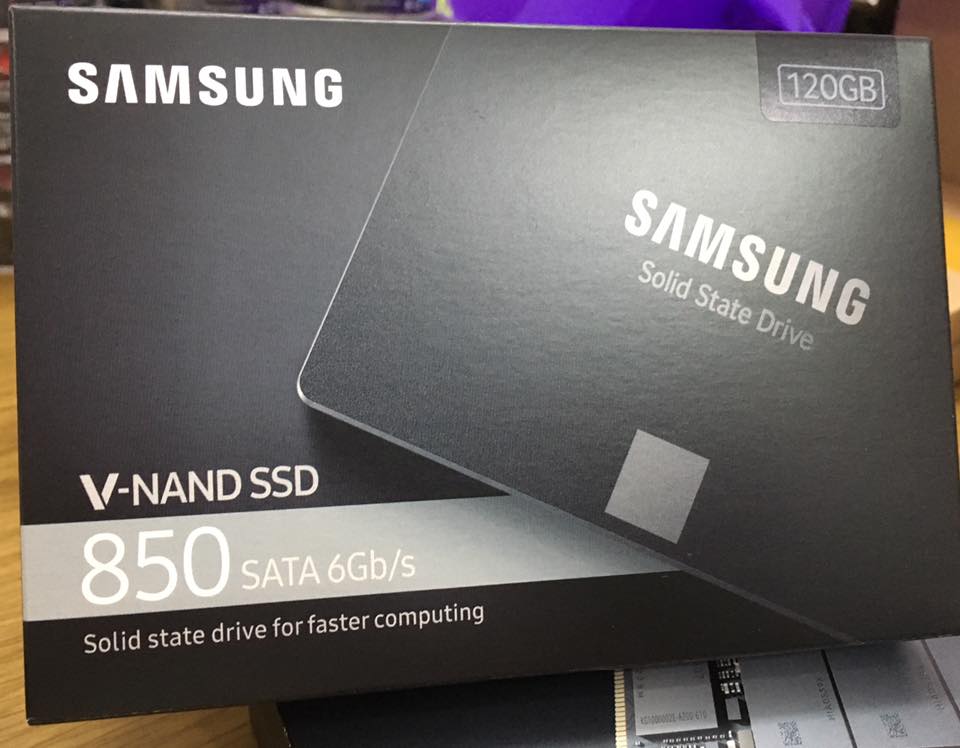
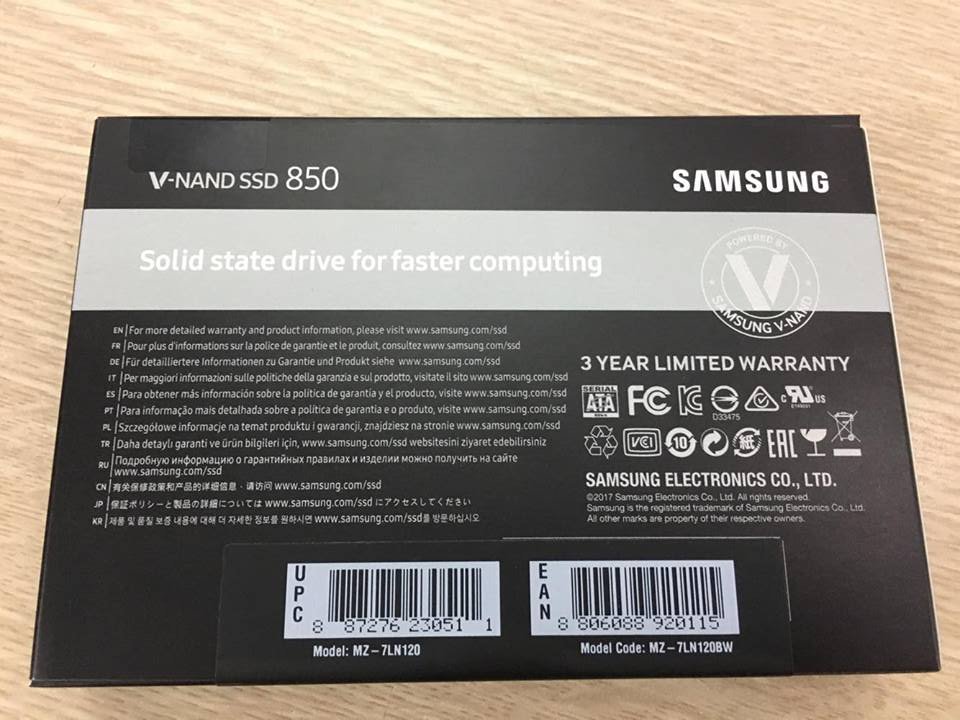
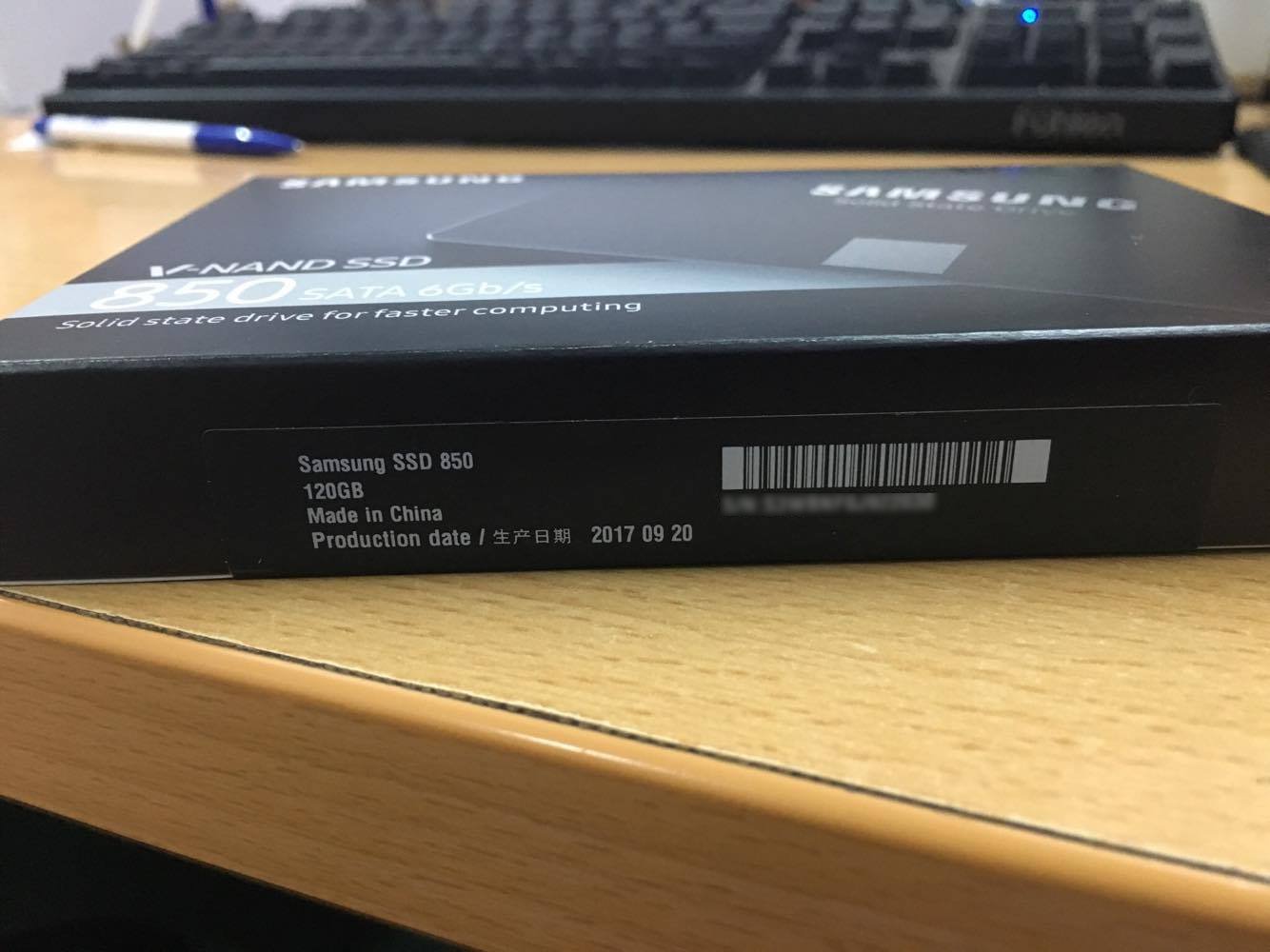
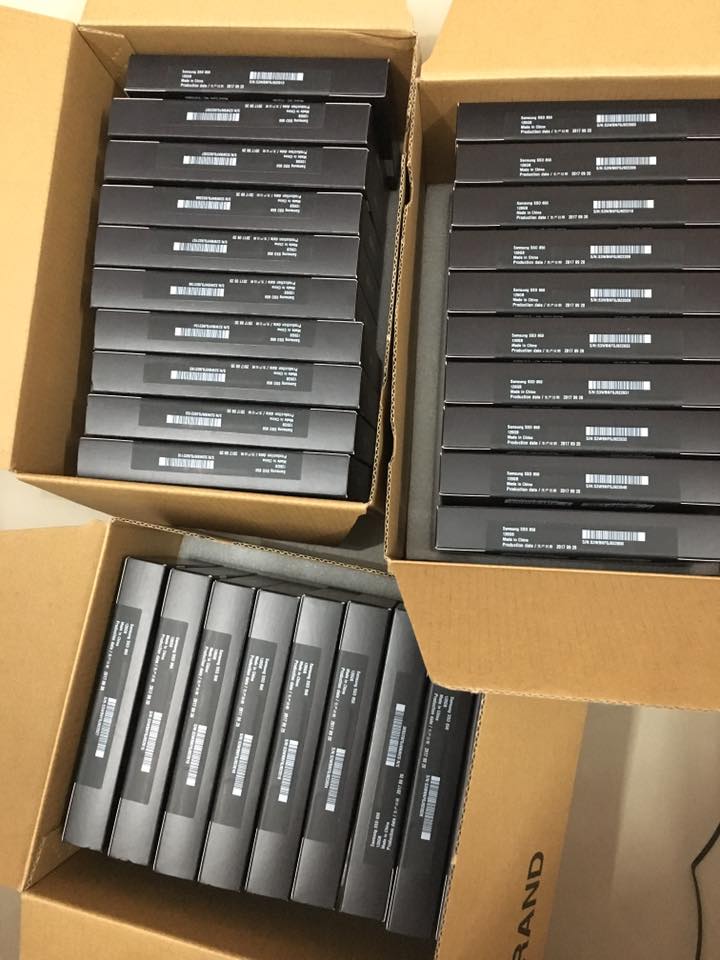
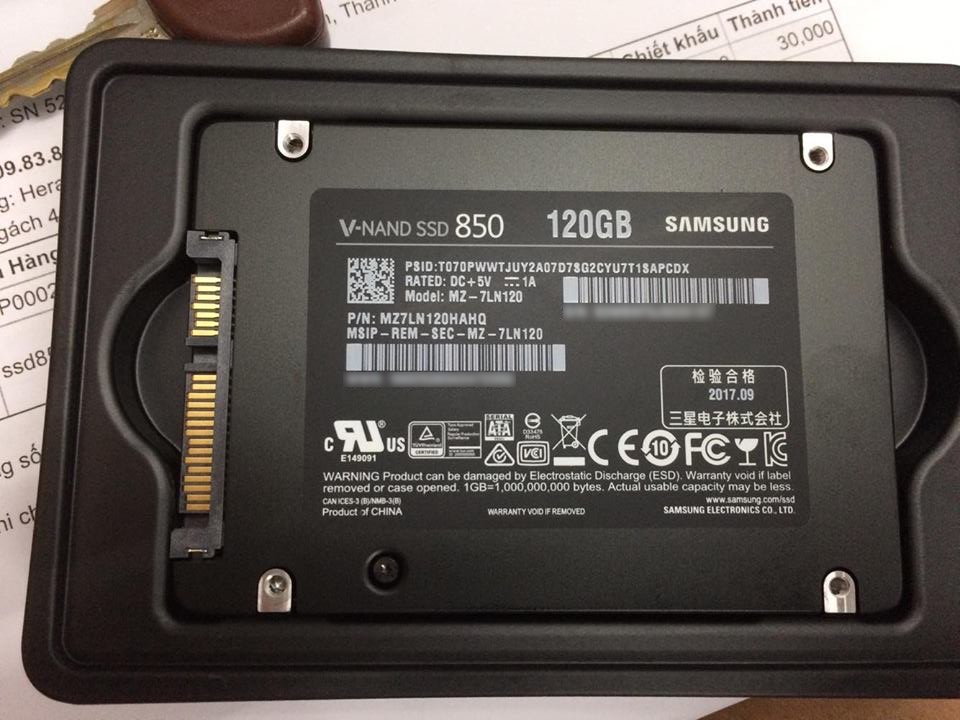
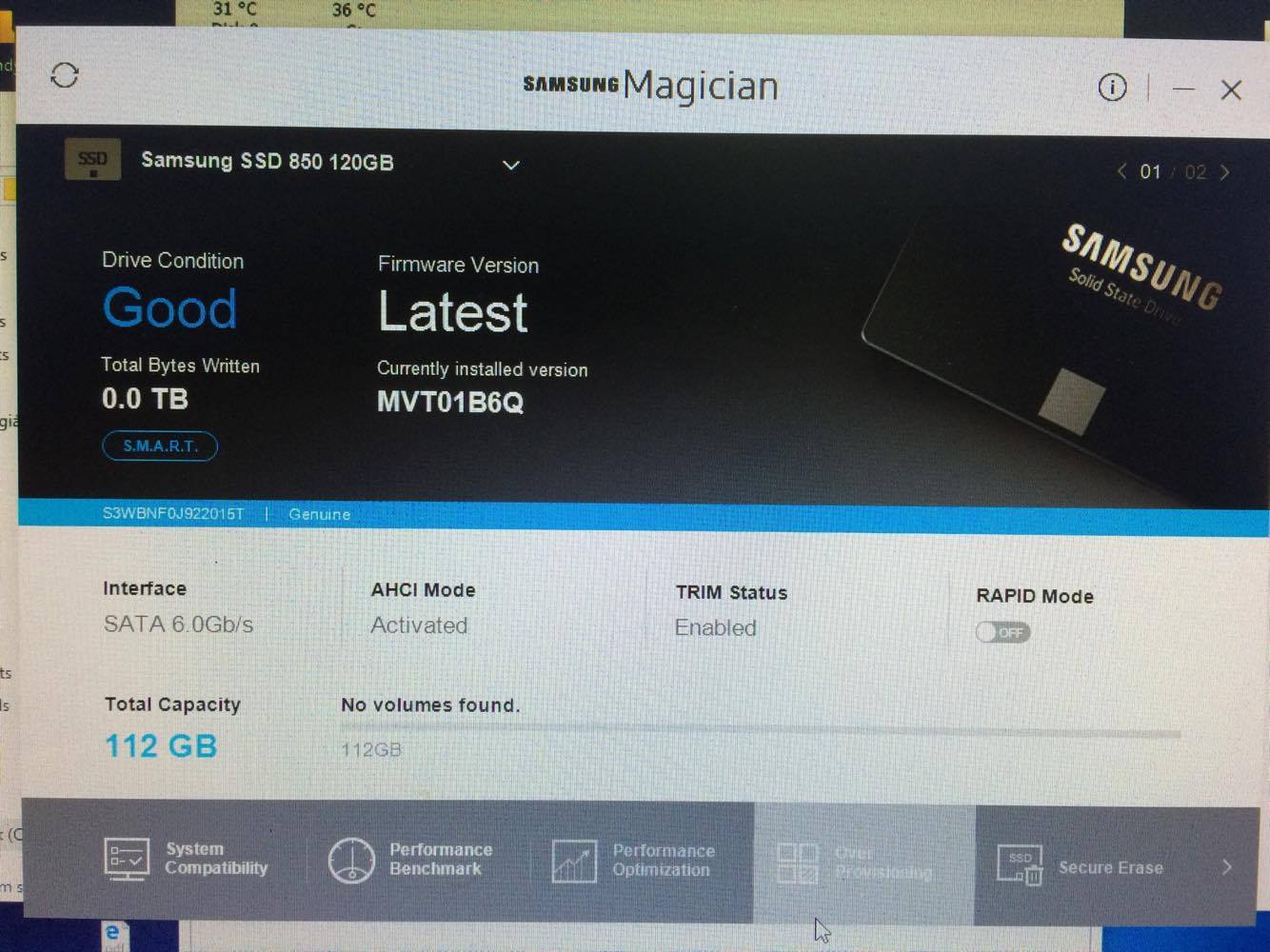
Our quest to conquer the Samsung PM981, and get it in our hands, has led us down a long and winding road. We knew that Samsung would move away from the Pro / EVO product scheme; that's been rumored in some circles for a few months now. We were initially reluctant to post anything about it, but we have learned some information supporting, and later contradicting, this theory.
First let's look at the upcoming Samsung 850 SSD that will ship without the Pro or EVO surname. Above are the first pictures of this product ever published online. We don't have any performance details, but we'll know more soon, and we can give you some early tidbits. The new 850 will ship with a 3-year warranty instead of the 850 EVO's 5-year warranty (10 years for the 850 Pro). The 120GB capacity size has an endurance rating of 75 TBW.
At this time we don't know of any other capacity sizes in this series, but we'll continue to search for more information. This product reminds us of the 750 EVO series that will target entry-level builds from system integrators.
Samsung 860 Series 256GB, 500GB, 1TB, 2TB, And 4TB
We also found a reference to the upcoming Samsung 860 series. This came from the SATA-IO Integrators List that was updated on September 27 with the drive. The list refers to the drive as the 860 EVO, and that goes against the story of Samsung moving away from the EVO / Pro names.
The list shows five capacities for this series, 256GB, 500GB, 1TB, 2TB, and 4TB. All of those sizes were used in the 850 EVO, so you wouldn't assume these offer anything special except a controller and NAND update to 64-layers. That might be true, but later in the evening we spoke with an insider who led us down a different path: We were told to expect the Samsung 860 to be the company's first consumer QLC SSD.
If our information is accurate, the next generation EVO products could represent QLC technology and the non-EVO models could be code for TLC. At this point it's all speculation, but that's what makes being the cat more fun than being the mouse.
MORE: Best SSDs
Get Tom's Hardware's best news and in-depth reviews, straight to your inbox.
MORE: How We Test HDDs And SSDs
MORE: All SSD Content

Chris Ramseyer was a senior contributing editor for Tom's Hardware. He tested and reviewed consumer storage.
-
AgentLozen I'm glad to see that Samsung hasn't abandoned the 2.5'' SATA format. I'm really curious to know if they plan to use new controllers with these drives.Reply
TLC flash memory has adequate endurance for 95% of all users but I've read (here) that endurance lowers by a factor of 10 when you add an additional level to the memory. I'm concerned that QLC memory will have a limited user base due to the limited number of endurance cycles. -
80-watt Hamster Reply20307384 said:I'm glad to see that Samsung hasn't abandoned the 2.5'' SATA format. I'm really curious to know if they plan to use new controllers with these drives.
TLC flash memory has adequate endurance for 95% of all users but I've read (here) that endurance lowers by a factor of 10 when you add an additional level to the memory. I'm concerned that QLC memory will have a limited user base due to the limited number of endurance cycles.
If the price-to-density ratio is right, QLC could be affordable enough to really put the hurt on HDDs for consumer bulk storage. I still haven't bought an SSD larger than 240GB, because the value just isn't there at the 500GB+ level (for me). -
lahma I've had at least a 1TB SSD for my main desktop (gaming PC) and at least a 500GB SSD for my primary laptop since sometime around the release of the 840 Evo. To be honest, it's hard for me to imagine having any less SSD storage space and it still being practical. Even with this much space, I still feel like I'm constantly shuffling things between my spinning disk RAID storage and my SSD so I don't run out of space on my SSDs. I think I can manage this situation until the NAND shortage is resolved and the higher capacity SSDs (2TB, 4TB) no longer carry such a premium price point. With PC games now that are regularly 30GB-100GB, and the large amounts of storage that can be used by working between multiple VMs running different platforms and having the need to store many snapshots simultaneously, 1TB of space just doesn't feel like that much space anymore.Reply -
AgentLozen Replylahma said:...1TB of space just doesn't feel like that much space anymore.
1TB is plenty of space for gaming home use. For the majority of people, it's more than you'll need for a long time.
Of course, there's a reason why Samsung produces SSDs that are larger. It seems like you're the kind of person who needs that extra oomph. -
Magnumload 1TB would be great if you had internet that could just redownload your games lickity split. I on the other hand don't. I have a 500gb 850evo that I just shuffle around between my 3 other HDDS, I also run my plex server on this PC. I have 6TB of space between my drives and I'll need more space by next year. I'm running out of HDD slots so I'll have to get 6tb or up and consolidate.Reply -
gdmaclew The article states "The list shows four capacities for this series, 256GB, 500GB, 1TB, 2TB, and 4TB.", which is five capacities. Which one is it?Reply
Looks interesting though.
-
Kewlx25 Reply20307384 said:I'm glad to see that Samsung hasn't abandoned the 2.5'' SATA format. I'm really curious to know if they plan to use new controllers with these drives.
TLC flash memory has adequate endurance for 95% of all users but I've read (here) that endurance lowers by a factor of 10 when you add an additional level to the memory. I'm concerned that QLC memory will have a limited user base due to the limited number of endurance cycles.
I don't know if this will be true in the real world, but from what I've been hearing QLC will have about the same total data writes, just fewer write cycles. If it comes down to choosing between a 512GiB drive with 100TiB of writes or an 8TiB drive with 100TiB of writes, I know what I'll be choosing. Facebook was talking about this tech years ago saying they were looking at something like 25TiB drives with four write cycles.
I would probably stay away from QLC as a boot drive. I could see file systems being tweaked to never truly delete data.
